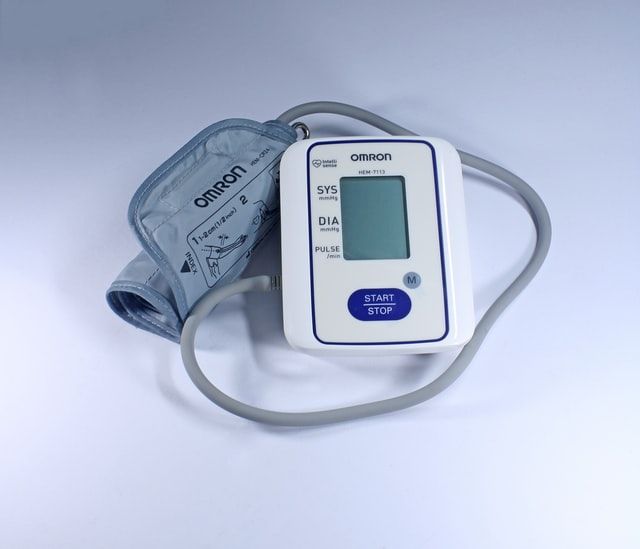
High Blood Pressure Awareness Month: How to Manage Stress
When you have stress on the mind, you feel it in your body. For many people, psychological stress can manifest physically as high blood pressure. Other symptoms of stress include increased muscle tension, aches and pains, racing heartbeat, increased sweating, gastrointestinal distress, and sleep disruption. Unfortunately, recent data from the American Psychological Association (APA) reveals that more than a quarter of Americans report feeling so stressed daily that they can’t function, while more than a third of adults report feeling completely overwhelmed by stress on most days.
Whether you’re a public health communicator, someone who is suffering from or at risk of developing high blood pressure, or a member of the general public, being aware of the impact of stress in today’s culture is paramount. In honor of May’s designation as High Blood Pressure Awareness Month, here’s what you need to know about stress, its effect on high blood pressure, and how to manage stress and reduce your blood pressure.
What Is Stress, and How Does It Impact Blood Pressure?
The feeling of stress has been around throughout human evolution. Powered by hormones such as cortisol and adrenaline, the stress response has served human ancestors well, helping them to stay alert in the presence of dangerous predators, seek shelter, find resources, and protect their young. However, in today’s society, the influx of stress hormones has no obvious endpoint. Stress triggers are different (traffic jams, late-night emails from managers, financial pressures), and the impact of stress on the body has changed as well. Exposure to chronic stress can lead to the development of chronic diseases, such as high blood pressure. Recent research shows that people who report high-stress levels are 61% more likely to also have high blood pressure compared to those with lower stress levels.
How Stress Management Can Improve Your Blood Pressure
The hormones that drive your stress response increase your blood pressure. This can be advantageous in short bursts, such as during physical exercise. However, when your heart and blood vessels are constantly exposed to higher pressure, you can develop atherosclerotic plaques and a narrowing of your blood vessels. These can drive up your blood pressure further, putting you at risk of high blood pressure-related health events such as heart attack and stroke. Fortunately, managing your stress can improve your blood pressure. In addition, according to the American Heart Association (AHA), managing your stress can improve your overall health as well.
Tips for Reducing Your Stress Level
It’s one thing to be aware that you need to control your stress level, but it can be difficult to know how to enact changes. Make sure to read through the following tips from the AHA about how to manage your stress to get better control of your blood pressure.
- Get the recommended amount of weekly exercise, which is 150 minutes of moderate physical activity or 75 minutes of vigorous physical activity. Combine this weekly program with two days of muscle-strengthening activity.
- Eat a healthy diet by minimizing processed foods and refined sugar. Opt instead for plentiful fruits and vegetables, whole grains, healthy fats, and lean meats.
- Avoid using substances such as alcohol or cigarettes to help cope with your stress. These can ultimately increase your stress and contribute to high blood pressure.
- Schedule time to speak regularly with friends and loved ones.
- Work on time management by giving yourself enough time to get things done, saying “no” more often, and not overpromising.
- Recognize that there are things that you cannot control, and try to only focus on the things that you can control.
- Use stress reduction techniques like deep breathing and visualization for 15 to 20 minutes a day, even when you are busy.
- Get the recommended amount of sleep, which is 7 to 9 hours nightly.
If you’re still having difficulties managing your stress after following these tips, make sure to talk with a healthcare provider who can give you further support and help you avoid developing the health consequences that result from chronic stress.
How To Learn More About Stress and Blood Pressure Management
Managing your stress can improve your blood pressure and reduce your risk of experiencing a cardiovascular emergency. To learn more about stress management and blood pressure, check out this lifestyle and risk reduction information sheet from the American Heart Association. You can also find helpful resources about High Blood Pressure Education Month here.
Research and materials for this article were compiled, written, and distributed on behalf of the National Public Health Information Coalition. The views and opinions expressed in this blog are those of the various authors and do not necessarily reflect the official policy or position of the National Public Health Information Coalition or its members.
Sources
- Stress in America 2022. https://www.apa.org/news/press/releases/stress/2022/concerned-future-inflation
- The association between perceived stress and hypertension among Asian Americans: does social support and social network make a difference? https://www.ncbi.nlm.nih.gov/pmc/articles/PMC6504578/
- Managing Stress to Control High Blood Pressure. https://www.ncbi.nlm.nih.gov/pmc/articles/PMC6504578/
- Physical Activity: Adults. https://www.cdc.gov/physicalactivity/basics/adults/index.htm
- How Can I Manage Stress? https://www.heart.org/-/media/Files/Health-Topics/Answers-by-Heart/How-to-Manage-Stress.pdf
- May is High Blood Pressure Education Month. https://www.nhlbi.nih.gov/education/high-blood-pressure/high-blood-pressure-education-month#:~:text=High%20blood%20pressure—or%20hypertension,your%20numbers%20mean%20for%20you.

